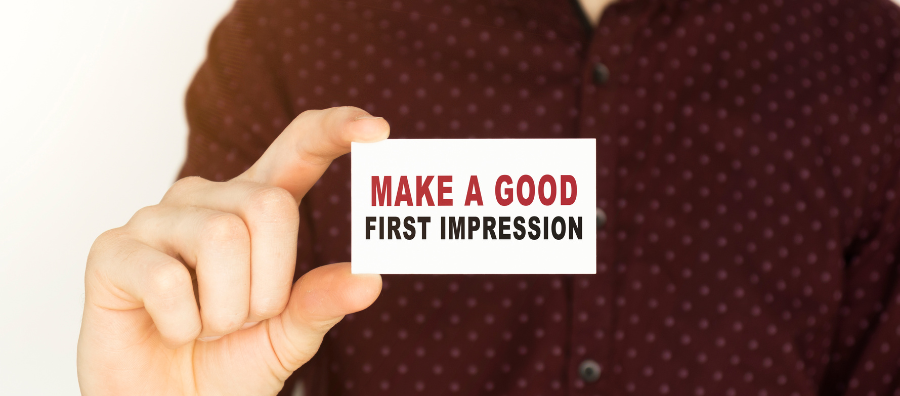Why do you need rapport?
Rapport is the connection between two people; the spoken and unspoken words that say ‘we are on the same page’. It is the art of making someone feel comfortable and accepted. To create rapport, we need to know how to connect with others regardless of their age, gender, ethnic background, mood, or situation.
Whilst a robust recruitment process should include objective interviewing, the ability to create and build rapport is crucial in an interview, where someone’s immediate impression of you is critical. Creating a positive connection is potentially going to have a considerable impact on whether or not the interviewer will wish to progress matters with you.
It is natural to be attracted to people that we consider similar to ourselves. Rapport will build quite naturally as you talk about common interests, views, experiences. Similarities are emphasised and differences are minimised. Communication becomes much more natural and easier. However, it is important to understand how you can still create rapport even when speaking with people who aren’t similar to you.
In an interview situation you can employ numerous techniques to maximise the rapport between yourself and your interviewer:
First impressions count
In a face to face meeting whilst we are encouraged not to judge at face value, opinions are already being formed in the first few seconds by the way we look, our clothes, hair, facial expressions and posture. Before you have even said hello you and the interviewer will be absorbing non-verbal clues about each other – how you sit in reception, how the interviewer walks towards you, how you stand, how you walk, how you shake hands, how you smile, and how you sit in the interview room.
If a video interview consider the image you are projecting – dark clothing can suggest authority; lighter- friendliness, jewellery -power or wealth. Hair style might suggest sensible, cutting-edge, formal or friendly; make-up might suggest glamorous or professional. What else can the interviewer see on the call -a well organised office space, or clutter and mess behind you?
In a telephone interview situation are you in a quiet space with no background noise interrupting the flow of conversation?

Show genuine interest
Focus on the interviewer as a person who you genuinely want to get to know better professionally, and your overall attitude is likely to become more genuine. Imagine that they are an important guest in your home, who you would naturally want to make feel welcome and at ease. In interview situations the focus can often be on your prospective employer getting to understand and know you better, but making the effort to understand them will considerably improve rapport and more open exchange of information.
Balance
The danger in trying to create rapport too quickly can be sounding over-familiar and false. Remember:
- If a video call – smile when you first see your interviewer, establish and maintain eye contact
- Use the person’s name
- Do more listening than talking
- Ensure that you have done your research on the role, company and interviewer so that you can ask relevant and pertinent questions
Match and mirror
This is a commonly used tool to create rapport, matching pace (walking/talking), body language and speech. Matching and mirroring is when you deliberately take on someone else’s style of behaviour in order to create rapport – a way of becoming highly tuned to another person. If done well, this can be a very powerful technique for building rapport in an interview.
To do this, you need to match:
- Voice tone, speed and volume
- Breathing rates
- Speech patterns – listen for key words or phrases your interviewer uses and build these subtly into your conversation.
- Think about how the interviewer handles information. Do they like detail, or talk about the bigger picture? Feed back information in a similar way
- If a video interview rhythm of body movement and energy levels, body postures and gestures (the interviewer leans forward, you lean forward, they lean back, you lean back).
You shouldn’t feel the need to do this for more than a few moments. As you naturally start building rapport you can settle into your own style.
Subtly is important
Matching and mirroring must be carried out in a subtle way. If it becomes unnatural or obvious it will have a negative impact on the interviewer who could feel uncomfortable or awkward. Subtly is important – focus more on sound of voice/eye pattern. If a video interview a very occasional near copy of gesture (if they sit back and cross their arms across their chest, you may want to sit back slightly with hands crossed across your lap. Don’t mirror anger – in this instance you’d express concern.

Take some time to think about building rapport – you can practice this in any situation there is another person present. Remember to observe yourself and others and how you interact - what can make this a positive or negative interaction?